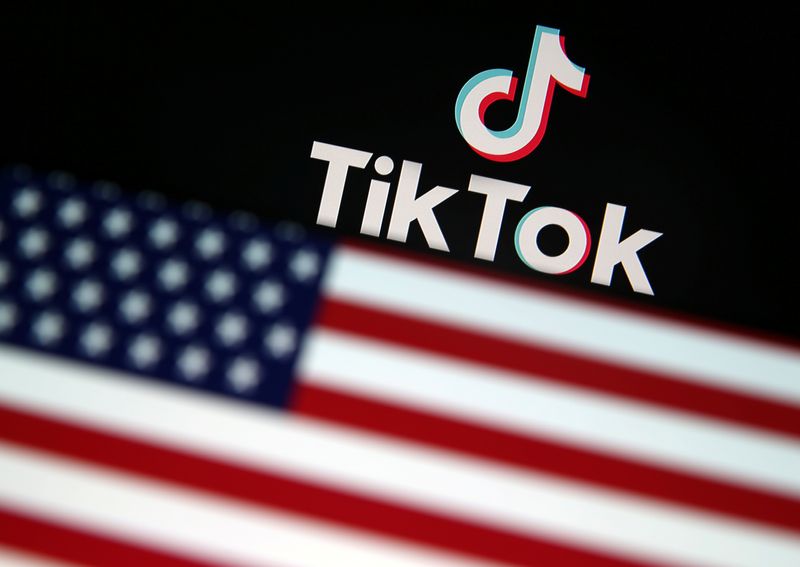By Josh Ye
HONG KONG (Reuters) - The U.S. House of Representatives overwhelmingly passed a bill this week that would give TikTok's Chinese owner ByteDance about six months to divest the U.S. assets of the short video app, or face a ban, in the greatest threat to the app since the Trump administration.
Below is what we know about the Chinese company, which was valued at $268 billion in December.
WHO IS BYTEDANCE?
Nicknamed "App Factory" due to its frequent releases of mobile applications, ByteDance was founded by software engineer Zhang Yiming in 2012 in Beijing.
It is often seen as the world's leading company on algorithms because its flagship apps such as TikTok, Douyin and Toutiao are powered by commanding recommendation engines that make its apps appealing to users.
Its first breakout hit was Toutiao, a news aggregation app released in 2012 that leverages machine learning algorithms to provide each user a personalized content feed.
Douyin, TikTok's sister app in China launched in late 2016, was an instant success and became ByteDance's second app with more than 100 million users in under a year after release.
ByteDance launched an international version of Douyin called TikTok the following year. While ByteDance said the two apps were positioned as two different products from the beginning, they share the same logo and similar user interface design.
FOUNDER, CEO AND KEY INVESTORS
Born in the southeastern coastal province of Fujian, Zhang studied software engineering at Nankai University of Tianjin. Before founding ByteDance, he worked at multiple tech companies including a brief stint at Microsoft (NASDAQ:MSFT).
In ByteDance’s early years, he spent much of his time in Beijing working on Toutiao and Douyin, but since the COVID-19 pandemic outbreak, he has been spending more time abroad, with Singapore a key base, according to people familiar with the matter. They declined to be named because they were not authorized to speak to media.
In 2021, Zhang stepped down as ByteDance’s CEO and passed the reins to Liang Rubo, his co-founder and university roommate. At the time, he said he lacked the social skills to be an ideal manager and would rather spend time thinking about long-term strategy for the company away from the limelight.
According to a release published by TikTok last May, about 60% of ByteDance is "beneficially owned by global institutional investors such as Carlyle Group (NASDAQ:CG), General Atlantic, and Susquehanna International Group," 20% by employees, and the rest by Zhang.
Still, Zhang holds over 50% of ByteDance's voting rights, sources said.
RELATIONSHIP WITH CHINESE GOVERNMENT
Like with most big Chinese companies, China's ruling Communist Party has set up a party branch at ByteDance - in 2014, according to state media, raising concerns about Beijing's influence over the company.
Scrutiny over ByteDance expanded further after the government took a 1% stake in its local subsidiary Beijing ByteDance Technology in 2019 that awarded the Chinese government a board seat at the subsidiary.
ByteDance became a prominent target of the U.S. government during the Trump administration which issued executive orders in 2020 that required ByteDance to sell TikTok's U.S. assets or face being banned in the country. The orders were blocked by federal courts.
Beijing, which opposed Trump's executive order, at the time revised a list of technologies that would need Chinese government approval before they are exported. Experts said TikTok's recommendation algorithm would fall under the list.
U.S. officials have criticised TikTok's security and privacy, suggesting user data might be shared with Beijing.
TikTok, used by about 170 million Americans, has said the firm has never shared, or received a request to share, U.S. user data with the Chinese government.
To try to alleviate concerns, TikTok formed an alliance with Oracle (NYSE:ORCL) and started to host its American user data in the U.S. firm's cloud infrastructure from 2020.
TikTok has been pushing back on the newly proposed bill. Its CEO Shou Zi Chew said this week that the company would exercise its legal rights to prevent a ban.
